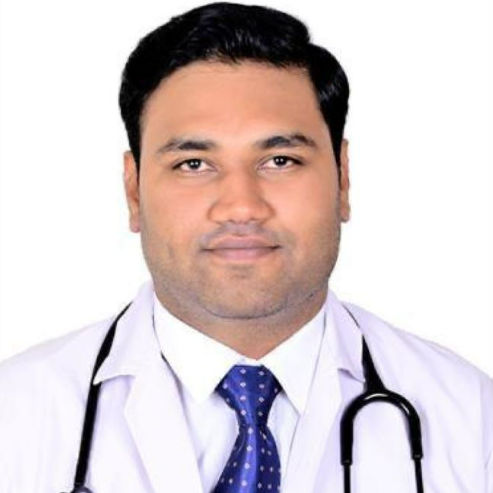Understanding Lip Ties in Infants
Understand lip ties in infants, including common signs, symptoms, and causes. Learn how a lip tie can affect your baby’s health, explore diagnosis and treatment options, and get practical tips for managing a lip tie at home.


Introduction
Welcoming a newborn into your family is a joyous experience, but it can also come with challenges, especially when feeding difficulties arise. One such concern that parents may encounter is a lip tie in their infant. If you’ve heard this term and are unsure what it means or how it affects your baby, this article will help you understand the condition, its symptoms, causes, and management options.
What Is a Lip Tie?
A lip tie (or labial frenulum tie) occurs when the piece of tissue (called the frenulum) that connects the upper lip to the gums is too thick, tight, or stiff. This restricts the movement of the upper lip, which can interfere with breastfeeding or bottle-feeding.
While some degree of lip tie is normal, severe cases can cause discomfort for the baby and challenges for the mother during feeding.
Signs and Symptoms of a Lip Tie
Not all lip ties cause problems, but if your baby is struggling with feeding, watch for these signs:
For the Baby:
- Difficulty latching onto the breast or bottle
- Frequent slipping off the nipple during feeding
- Clicking sounds while nursing (due to poor suction)
- Excessive gassiness or colic (from swallowing air)
- Poor weight gain (due to inefficient feeding)
- Prolonged feeding sessions (taking too long to feed)
- Fatigue or frustration during feeds
For the Mother:
- Painful or cracked nipples
- Frequent clogged milk ducts or mastitis
- Low milk supply (due to ineffective milk removal)
If you notice these symptoms, consult a paediatrician or lactation specialist for an evaluation.
Consult a Paediatrician for the best advice
Causes of Lip Tie
Lip ties are congenital, meaning babies are born with them. The exact cause isn’t always clear, but genetics may play a role; some families have a history of tongue or lip ties.
How Does a Lip Tie Affect a Baby’s Health?
If left unaddressed, a lip tie can lead to:
- Poor nutrition (due to feeding difficulties)
- Dental issues (gaps between front teeth, gum recession, or tooth decay in the future)
- Speech difficulties (later in childhood if the lip movement remains restricted)
Diagnosis and Treatment Options
Proper diagnosis and timely treatment of a lip tie can help prevent feeding issues and support your baby’s overall development.
Diagnosis:
- A paediatrician, dentist, or lactation consultant can diagnose a lip tie by examining your baby’s mouth and observing feeding patterns.
Treatment:
- Not all lip ties require treatment. If feeding is unaffected, no intervention may be needed. However, if feeding is difficult, treatment options include:
- Laser or Scissor Frenotomy – A quick, minimally invasive procedure where the frenulum is clipped or lasered to allow better lip movement.
- Feeding Therapy – Working with a lactation consultant to improve latching techniques.
- Stretching Exercises – If a frenotomy is performed, gentle stretches may be recommended to prevent reattachment.
The procedure is usually quick, with minimal discomfort, and babies often feed better immediately afterward.
Tips for Managing Lip Tie at Home
If your baby has a mild lip tie, these tips may help improve feeding:
- Try Different Nursing Positions – Experiment with holds like the football hold or laid-back breastfeeding to help your baby latch better.
- Use a Nipple Shield – This can help babies with latch difficulties.
- Burp Frequently – Since lip-tied babies swallow more air, burping them often can reduce gas.
- Monitor Weight Gain – Ensure your baby is gaining weight appropriately with regular paediatric check-ups.
When to Seek Professional Help
If you suspect a lip tie is affecting your baby’s feeding, consult a:
- Paediatrician
- Lactation Consultant
- Paediatric Dentist
Early intervention can prevent long-term feeding and dental issues.
Final Thoughts
A lip tie can be a challenging condition for both babies and parents, but with the right support, it can be managed effectively. If you’re concerned about your baby’s feeding, don’t hesitate to seek professional advice.
Consult a Paediatrician for the best advice
Consult a Paediatrician for the best advice

Dr. Sushil Kumar
Paediatrician
30 Years • MBBS, MD - Pediatrics
Bilaspur
Apollo Hospitals Seepat Road, Bilaspur
(25+ Patients)

Dr. Saheli Dasgupta
Paediatrician
10 Years • MBBS, MD (Paediatrics), Indian Diploma of Paediatric Critical Care Medicine
Kolkata
Sristi Polyclinic, Kolkata

Dr. Akhila Hb
Paediatrician
10 Years • MBBS, MD ( PAEDIATRICS), Fellowship in Asthma and Allergy
Bengaluru
Apollo Medical Center, Marathahalli, Bengaluru
(50+ Patients)

Dr. Guruprasad N
Paediatrician
7 Years • MBBS, MD Peadiatrics, DNB pediatrics
Bangalore
Apollo Clinic Bellandur, Bangalore

Dr Sharvari Kulkarni
Paediatrician
5 Years • MBBS, MD PEDIATRICS
Pune
Apollo Clinic, Viman Nagar, Pune
Consult a Paediatrician for the best advice

Dr. Sushil Kumar
Paediatrician
30 Years • MBBS, MD - Pediatrics
Bilaspur
Apollo Hospitals Seepat Road, Bilaspur
(25+ Patients)

Dr. Saheli Dasgupta
Paediatrician
10 Years • MBBS, MD (Paediatrics), Indian Diploma of Paediatric Critical Care Medicine
Kolkata
Sristi Polyclinic, Kolkata

Dr. Akhila Hb
Paediatrician
10 Years • MBBS, MD ( PAEDIATRICS), Fellowship in Asthma and Allergy
Bengaluru
Apollo Medical Center, Marathahalli, Bengaluru
(50+ Patients)

Dr. Guruprasad N
Paediatrician
7 Years • MBBS, MD Peadiatrics, DNB pediatrics
Bangalore
Apollo Clinic Bellandur, Bangalore

Dr Sharvari Kulkarni
Paediatrician
5 Years • MBBS, MD PEDIATRICS
Pune
Apollo Clinic, Viman Nagar, Pune

.webp)


